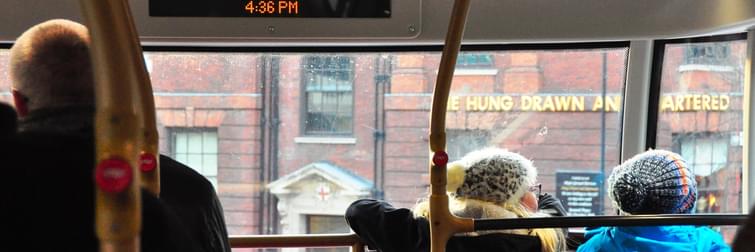
blog: What does success now look like for a sustainable transport planner?
Monday 10th October 2022
One thing the pandemic has taught us is that we can change our behaviors. During lockdown there was a surge in cycling and walking, as people took advantage of their limited freedoms by exploring their local areas using active modes. Those that tried walking and cycling seemed to enjoy it, and calls for more space to be allocated to active modes were listened to, with new emergency walkways and cycle lanes provided for at pace across our urban areas. Indeed, these modes still remain above the 2019 levels, albeit the latest National Travel Survey findings have shown us that not only did they rise rapidly, but they also appear to be falling rapidly (from the highs of 2020), with car use in particular regaining ground.
So, this change in behavior got me thinking, what is it that sustainable transport planners really want as we look forward to the future of our communities?
I happen to be writing this blog from home, where I spend roughly 2 days per week, and the remaining 3 days in the office or with clients. I suspect that is fairly typical, although in some sectors 3 or 4 days working from home is I am sure more common. Pre-pandemic that would have been considered a major success, given ‘home working’ was a key measure within any travel planners toolkit. But is it really a success when we look at sustainable transport in the round?
It certainly doesn’t look that way for bus and train operators – struggling to make previously commercial networks operate financially, and desperately seeking drivers (who left the industry in the pandemic to become delivery drivers) to run their marginal services. Nor I suspect does it look successful for central and local government seeking new ways to keep public transport running through longer term subsidy support.
Irregular working from home patterns has also meant that public transport has become far less attractive, as previous seasons ticket holders make daily choices about whether to invest the time and money in a day’s trip to the office, or using the bus to go shopping on a weekend (which would have previously been the default once a monthly pass had been purchased).
I had hoped the pandemic would have made my job planning more sustainable places easier, but in many ways the new era of working from home makes the challenge even greater, with much more complex travel behaviors to consider. We have more delivery vehicles than ever dropping off parcels to a new generation of home shoppers, taking up the road-space vacated by car driving commuters - resulting in congestion remaining across a wider daytime period. The roads therefore still need to be maintained to pre-pandemic levels, and accidents still occur – all major costs to our society.
So, our new work from home routines might not have solved the carbon, health or congestion problems as we had hoped, but might have actually made things worse?
So, should sustainable transport planners now change the vision and ambition of what we want to achieve, and if so, what should that new vision be….
With new Local Transport Planning guidance from the DfT supposedly ‘just around the corner’ this might just be the new opportunity that sustainable transport planners need.
With a greater focus on evidence-led decarbonisation strategies within LTP’s, and the use of vision-led approaches to define what we want our local communities to look and feel like, we have every chance of properly taking stock of our new post pandemic lives and travel patterns, and re-shaping them to be as clean, healthy and sustainable as we want them to be. But we can only do that if we truly take the time to be honest with ourselves and the communities we work for, about what success looks like, and only then develop and build the right balance of infrastructure (alongside behavior change programmes) that allows that to happen.
I’m looking forward to playing my part….
If you would like to know more about how ITP can help support vision led Local Transport Plans and decarbonisation strategies then please get in touch.
